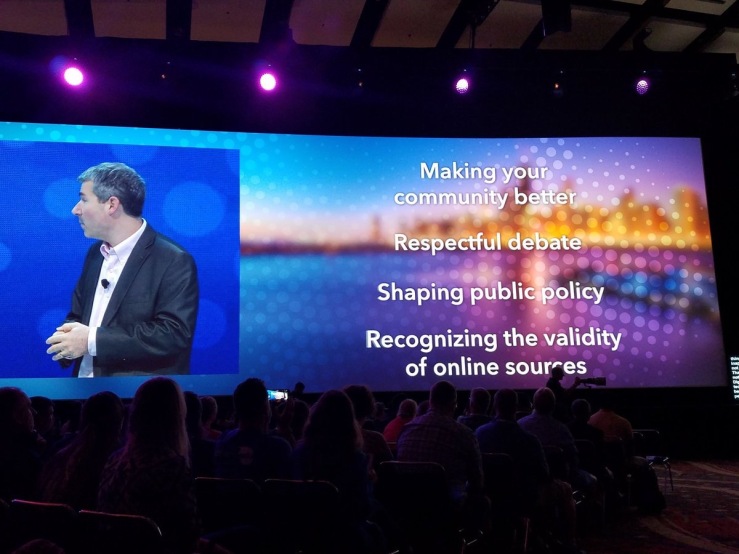“Promise me you’ll always remember: You’re braver than you believe, and stronger than you seem, and smarter than you think.”—Christopher Robin to Pooh, A.A. Milne
Life brings challenges. They simply can’t be avoided. The moment we are born the challenges begin. Rolling over. Taking our first steps. Learning to talk. As we get older, the challenges progressively get more diverse. Some are simple. Others tax the limits of our determination. Sometimes we fail and other times we succeed. In both cases, we do them gloriously or un-noticed. This is life.
One of the ongoing challenges faced by humanity is that of civility. Technology seems to have magnified both the good and bad of human interaction. News spreads at the speed of light. Even the most minute interaction can be shared around the globe via social media. “Fake news“ can be created by anyone with a desire to mislead. It has become easier to use technology as both a buffer and an eliminator of distance for communication.
In the past, writing a letter by hand was a thoughtful process. In some cases a letter might be started, stopped, and started again over a period of days before it was completed. Technology brings “instancy” to communication eliminating (in many cases) thoughtfulness and sometimes, restraint, in the communication process. Civility, courtesy, reflection, etc. are becoming extinct.

(CC image courtesy of Red Stamp on Flickr)
During the opening keynote of the ISTE conference, ISTE CEO Richard Culatta spent a few minutes emphasizing the need for a focus on digital citizenship that goes beyond copyright and the legal use of materials to include a focus on the positive attributes of communication that are necessary for online communication and discourse. The lessons have to extend beyond the classroom. In other words, we have to provide our students real life experiences related to positive and effective communication in all types of situations.
 (Image from Katherine Heywood tweet)
(Image from Katherine Heywood tweet)
In the end, Culatta challenged every attendee to determine “one thing you will commit to doing this year to promote digital citizenship?” I forward that challenge to each of you. If a single person commits to doing one thing, will their influence encourage or enable someone else to also do one thing? “One thing“ could start a revolution.
This past weekend I started seeing a few tweets from friends, colleagues, and students from my university painted a picture of tragedy. I knew something was wrong. One of our students had committed suicide. There are very few things I can think of that make one think “was there something I could have done?“ I only knew of this young person. I never had her in any of my classes. I watched her play on her college athletic team mainly because some of my students were on the same team. I knew the effect of the student’s action would be far reaching. I don’t know why it happened and will probably never know. What is important at this point is what happens now.
Just as Richard Culatta pointed out, effective and thoughtful communication is in such need right now. More than ever, we need to enable students to engage in thoughtful discourse, having compassionate exchanges, and supporting one another rather than tearing down. As teachers we see our role as one that includes helping students to learn and grow. More than ever we need to include thoughtful communication and building the capacity to care about others and to express that caring. One message of caring and hope might change the world or it might change one life.